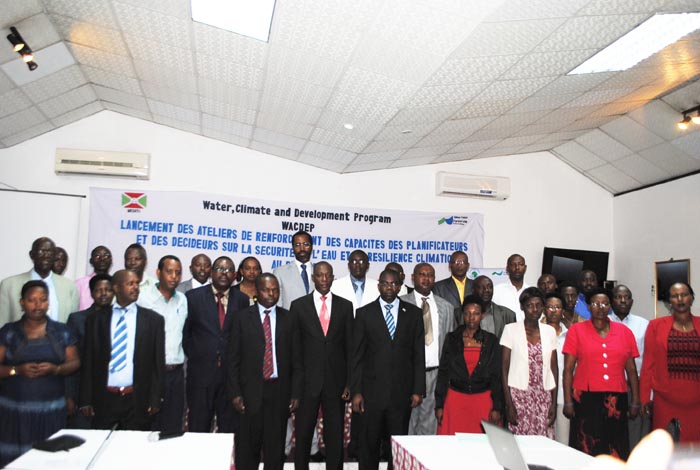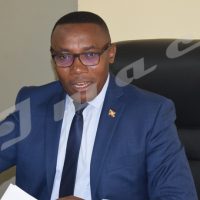The Water, Climate and Development Program (WACDEP) organized on 23rd December 2014, a workshop for chief editors from different media sources. The main objective of the workshop was to encourage them to focus on to water security and climate change resilience issues in their press.-By Diane Uwimana
“Climate change is a kind of virus, we must live with it whatever may happen”, says Christophe Gahungu, Burundi WACDEP Manager.
“It is important that chief editors should often focus upon climate change issues in their broadcasting and include articles which would sensitize and mobilize people to increase resiliencies against climate change,” adds Gahungu.
“Concerning, climate changes people must change their behaviours. It is a crucial part of journalists’ work to inform and educate people as to what is happening in the world, and what they are able to do about it”.
Some organizations already exist supporting climate change.
EvaristeSinarinzi, civil servant in IGEBU (Burundi Geographical Institute) and expert in water and climate change, warns that if behaviors do not change, things are likely to go from bad to worse: “According to a survey conducted by IGEBU, it is revealed that temperature increases 0.40C each ten years.”
For him, the journalists have an important role to play in helping decision-makers become more aware of integrated water resources management (IWRM) techniques that may be applied.
EgideNdayiragije, a facilitator at the workshop, notes the lack of coverage currently given to climate change by the Burundian press. “According to a survey conducted by the OMAC (Central Africa Media organization), few articles or broadcastings are devoted to climate change in Burundi. The media is not aware of the reduction of water in lakes and rivers.”
The media often presents the affects of climate change, but infrequently presents prevention messages to their audiences.
Evariste notes that media cover only effects and forget to cover it for prevention of the events.
Eric Nsengiyumva, from Arc-en-Ciel newspaper suggested the creation of a network of journalists from different medias, responsible for increasing the awareness of the public on climate change matters. He suggested that this network should be connected with journalists from Western countries also so that the Burundian knowledge about climate change resilience could be enhanced.
All chief editors who attended the workshop vowed to increase their coverage of water management and climate change issues in their respective media. WACDEP is being implemented in eight countries namely Ghana, Burkina Faso, Mozambique, Zimbabwe, Burundi, Rwanda and Tunisia as well as in four river basins which are Volta Basin, Lake Chad, Lake Victoria-Kagera, and Limpopo Basin.




















 IWACU Open Data
IWACU Open Data

